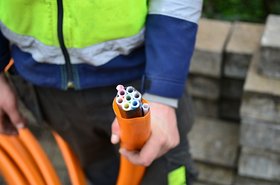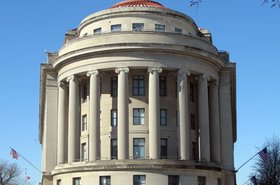UK communications regulator Ofcom has set out a proposal to make the 1,900 to 1,920MHz band available for the UK's rail network and emergency services.
The spectrum had previously been awarded to the UK's mobile operators but has so far gone unused.
Ofcom said the purpose of its proposal is to maximize the use of this spectrum and to support long-term improvements to the UK’s critical national infrastructure.
In its proposal, the regulator has suggested utilizing the 1,900 to 1,910MHz for operational rail communications to enable the rollout of the Future Railway Mobile Communication System (FRMCS).
As part of this, Ofcom notes the spectrum would be restricted to the provision of operational rail communications, will contain technical conditions suitable for the deployment of FRMCS, and require technical coordination with other existing or future FRMCS licensees in overlapping or neighboring geographic areas.
"FRMCS will support greater digitalization of the UK’s railways by replacing existing 2G technology and enabling trains, signaling, and workers to be better connected than before, helping to improve the running of the rail network," said Ofcom.
"In addition, as these frequencies have been harmonized across Europe for FRMCS use, the UK rail industry will benefit from standardized equipment."
Ofcom proposes the spectrum be issued "via a simple process, with checks on applicants’ ability to comply with key license conditions."
Separately, the regulator has proposed that spectrum in the 1,910 to 1,915MHz band will support the Emergency Services Network (ESN).
As such, Ofcom said the proposed license would be restricted to the provision of ESN gateways by the provider that is contracted by the UK Government to supply these gateways (currently BT/EE).
On top of this, it will have a "fixed duration, aligned with the contract to supply ESN gateways, allow use throughout Great Britain, and contain technical conditions consistent with standards used by the ESN."
The ESN is set to support more than 300,000 emergency responders in Great Britain, providing mobile services to the police, fire, and ambulance services in England, Scotland, and Wales. Airwave had initially been selected to deliver the ESN, before being dumped.
In January, the UK's Home Office selected IBM to develop a new communications network for frontline emergency services.
Spectrum pricing
As for pricing, Ofcom said it wants the proposed annual fee for 1,900–1,910MHz to cost £145,800 ($188,000) per MHz for a license covering Great Britain and £4,200 ($5,400) per MHz for a license covering Northern Ireland.
Meanwhile, fees would be half these levels in 1910–1915MHz notes Ofcom, "to reflect the lower power levels permitted."
Ofcom said it expects the total annual fee would be £1,458,000 ($1.88m) for 1,900–1,910MHz for a FRMCS license covering Great Britain, and £42,000 ($54,300) for a license covering Northern Ireland. Licenses for smaller rail networks would pay a smaller fee, scaled by the length of the rail routes covered.
The regulator proposes a fee of £364,500 ($471,000) for 1,910–1,915MHz for an ESN gateway license covering Great Britain.
Ofcom noted that fees would be payable from April 3, 2029, when the spectrum becomes available.
However, Ofcom said it's not proposing to authorize any use in 1,915 to 1,920MHz, "primarily because of the power restrictions necessary to protect the mobile band above 1,920MHz from interference, as well as uncertainty over demand for the spectrum."
Ofcom is seeking responses to its proposal by May 19, 2025.







